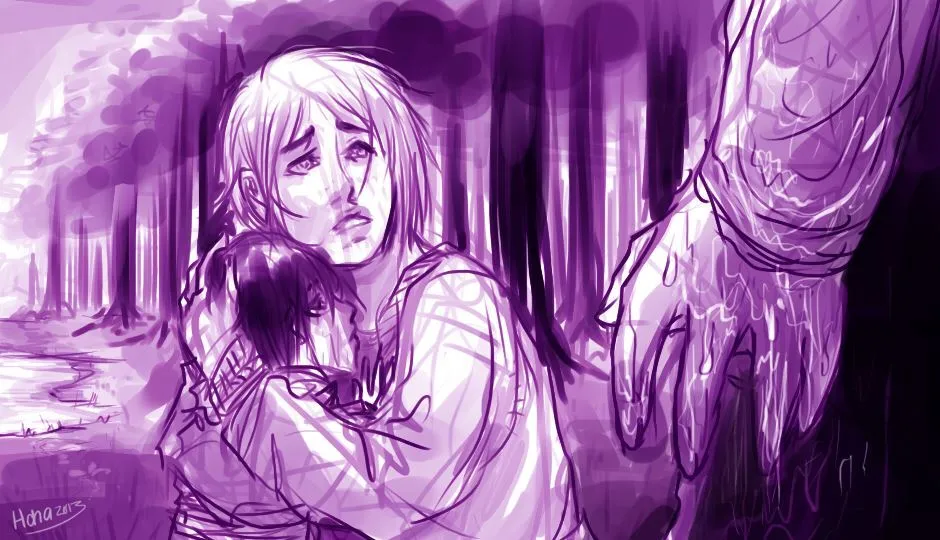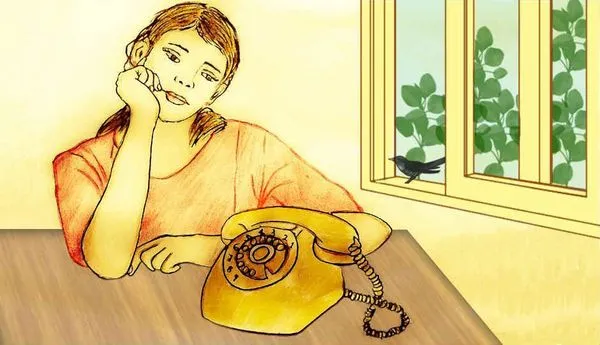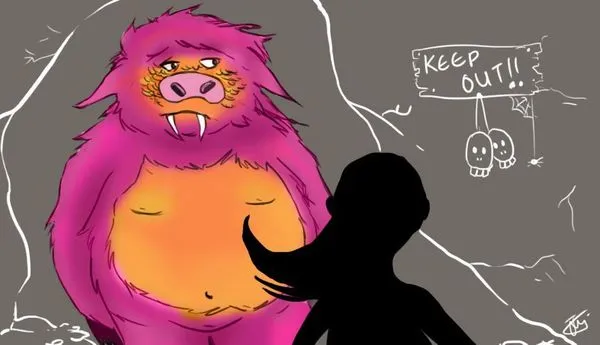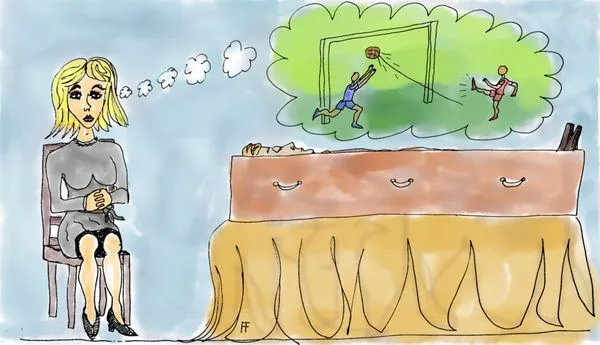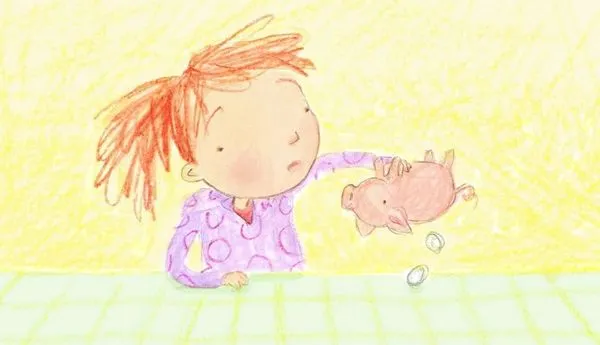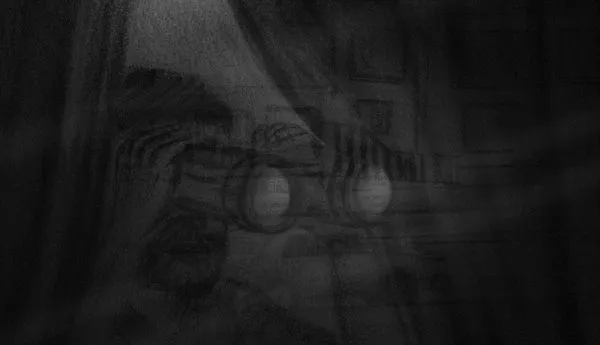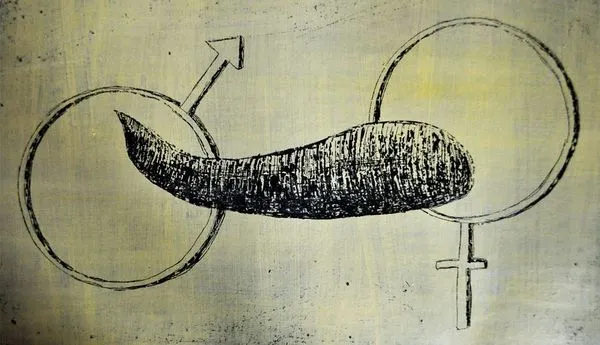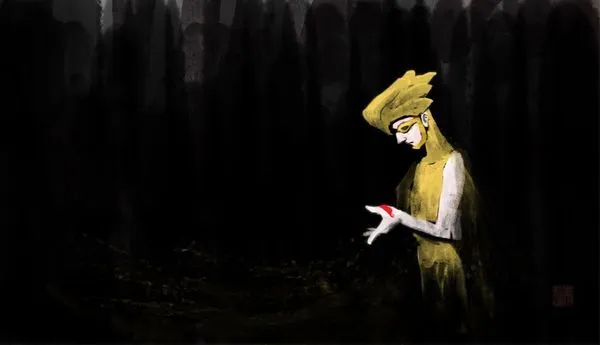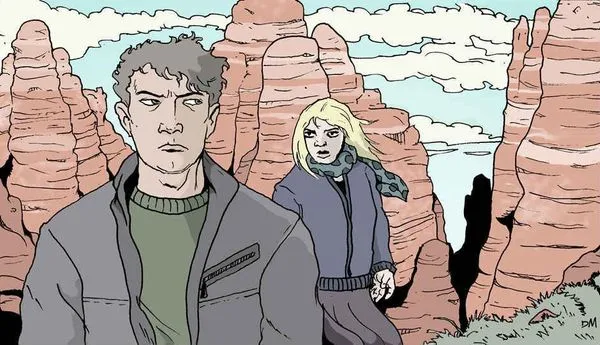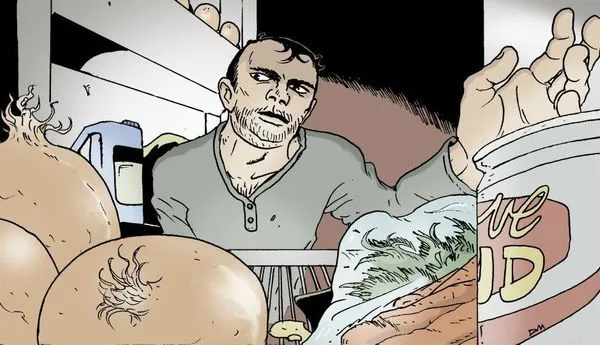Submersion
Published on 2013-11-14
He reached for her hand in the dark, remembering too late that he wouldn’t find it. Cradling her pillow as a pitiful substitute, John breathed in her lingering scent and wept, the bed creaking under the force of his sobs.
Hours later, when sleep came again, it was fitful, filled with dreams of calling her name and hearing it swallowed up into nothing. Of course it was all his fault. People tried to say otherwise, but John knew the ugly truth. He’d seen the water in the road, convinced himself that the four wheel drive could outmaneuver Mother Nature.
The heavy truck had been swept away like a child’s toy, bobbing and swirling in the torrent, water rushing up through the floorboards, sealing the doors shut, sealing their fate. His words echoed like a recording in his mind, constantly looping.
Go out the window with the current. Don’t worry, I won’t let go.
But the hungry water had other ideas, snatching his wife away like its last meal, devouring her. John tried not to think of the child that had just begun to grow inside her, the fact that his stupidity had winked out two lives. No one had known about the baby. They’d been trying so long, already suffered through five miscarriages.
Of course John believed that this would’ve been the one to make it to full term, to enter the world with his red hair and Abby’s blue eyes.
He drifted through the house, searching for something to do. There were no more arrangements to make, no more friends or relatives to call. Her will had been executed, the life insurance collected. Even her office at the university had been cleaned out, the contents delivered. Signing for it had felt like signing for her life, as if he’d find her curled up inside the box, just waiting for him to strip off the heavy layers of tape and unfold her like a present.
But the box only held plaques, awards, books, framed copies of her degrees in English and a single picture of the two of them, sun-browned and laughing, a snapshot of their trip to Hawaii. Abby was so beautiful, her wild mass of dark hair pinned up and fighting to escape, blue eyes sparkling like the ocean. So alive, so real, so his. John remembered the nights in the hotel room, smelling of coconut oil, tasting of sand and saltwater, every touch electric on their solar-powered skin. Raw and vulnerable, their defenses baked away in the heat, washed away by the tide.
So many memories of her were associated with water, never allowing him to escape the instrument of her death, tainting everything like a house where the floodwater’s receded and you own nothing it hasn’t touched, hasn’t ruined. John wanted to hate it, but how could you hate one of the elements?
Every time he filled a glass, took a shower, washed his hands, he wondered if that water had ever mingled with her. He searched his glass for a sign, a message, but the water was all clarity and none at the same time. He thought of her as water swirled down the drain, willing his message into the molecules.
I love you, Abby, and without you, I don’t know what to do.
John waited for her response spelled out in the steam on the mirror, as ghostly fingers brushing his body, leaving a trail of droplets. He waited for nothing. She was simply gone, evaporated.
Tomorrow he had to return to work. He wanted to look forward to it, to bury himself inside it, but he knew what was coming: awkward greetings, murmured condolences, pity-stricken gazes prickling the back of his neck, only to dart away when he looked up to meet them. He’d no longer be John Corelli, Systems Admin—he’d be the poor sap whose wife drowned in the storm. The poor sap who’d stop conversations when he entered the room, halt jokes in mid-punchline, stifle laughter out of some twisted sense of respect.
Days passed, becoming weeks, months, a year. His co-workers began to speak of dating, of “getting back out there”, but John refused their offers of blind dates with their cousin, sister, neighbor…how could he explain that he still thought constantly of Abby? That he still curled up with her pillow every night, that he sprayed it with her perfume to prolong her fading scent? Would any of it make them understand? Should he go on to explain how he saw her everywhere? Inside the elevator, just as the doors closed and she was lifted away. Getting off the subway just as he boarded, forever out of reach.
On the fourth anniversary of her death, John avoided the cemetery, going instead to the park where he sat on a bench near the water, throwing scraps of bread to expectant ducks. A small boy ran up, overeager, scattering the ducks. Unable to check his momentum, he fell headlong into the water.
John ran to fish him out and found the boy laughing, spluttering water, soaked.
“Nicholas!” a woman shrieked.
The boy’s face fell.
“Uh oh.” John smiled, gave the boy a sly wink as he turned to look at the woman.
Of course. Of course you’d look like her. Her hair was different, short and blond rather than long and dark, but her face, her body…
“Come, Nicholas, we’ve bothered the nice man enough,” she said, taking the boy by the hand.
Something in her voice, her movements…
“Abby?”
The name seemed to strike a chord for a split second. Perhaps it meant nothing, but John was too desperate. That moment’s hesitation spoke a truth he longed to hear more than his own heartbeat.
“Abby? It is you, isn’t it? So many times, I thought—”
“I’m sorry. You’ve mistaken me for someone else. Let’s go, Nicholas. Thank you for helping him.”
She moved to walk away, quickly, but John intercepted her, blocking the path. “Abby, it’s me. How can you not know me?”
“Sir, we have to go.” She picked up the boy, pressing him tight against her, his wet clothes seeping onto hers, darkening the fabric.
“Abby, what’s going on?” John studied the child, looking for any signs of himself, and found none.
The woman’s eyes grew wide. The boy hid his head in her shoulder, frightened by the crazy man who wouldn’t let them pass.
“Please, let me go,” she whispered, her voice cracking. “I’m really sorry if you’ve lost someone, but my name isn’t Abby.”
“But he—he’s the right age.”
“Please, Sir, we need to go. I don’t know what you want with my son, but—”
“But isn’t he—isn’t he ours?”
The woman hugged the boy even tighter. “Please. I’m not who you think I am. My name isn’t Abby and he isn’t yours. He isn’t yours.”
The extra emphasis carried the message he’d searched for in the water glass, the mirror, the night. Not-Abby passed by him, broke into a run. John made no attempt to stop her, to follow, couldn’t even turn his head to watch her go, carrying the child that wasn’t his.
All of the pieces fell into place in neat rows. All except John, the bulky extra piece that just didn’t belong. Nicholas, the same name as another professor in the English department, a man with the same dark hair, skin and eyes as the boy. A man who’d visited their home countless times, staying up with Abby long after John went to bed, drinking wine, discussing literature, laughing.
John sat on the grass by the pond, still clutching his bag of bread scraps, the ink from the label staining his hand, the water from the sodden ground seeping into his clothes. After all these years, the water still reached out for him.
He stood and walked into the middle of the pond. It seemed shallow—it always seemed shallow, but in the end, there was nothing the water didn’t touch.

